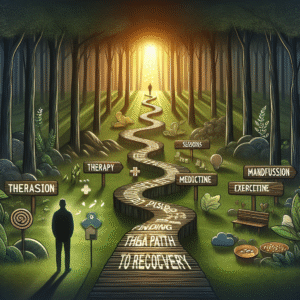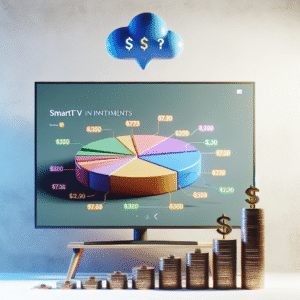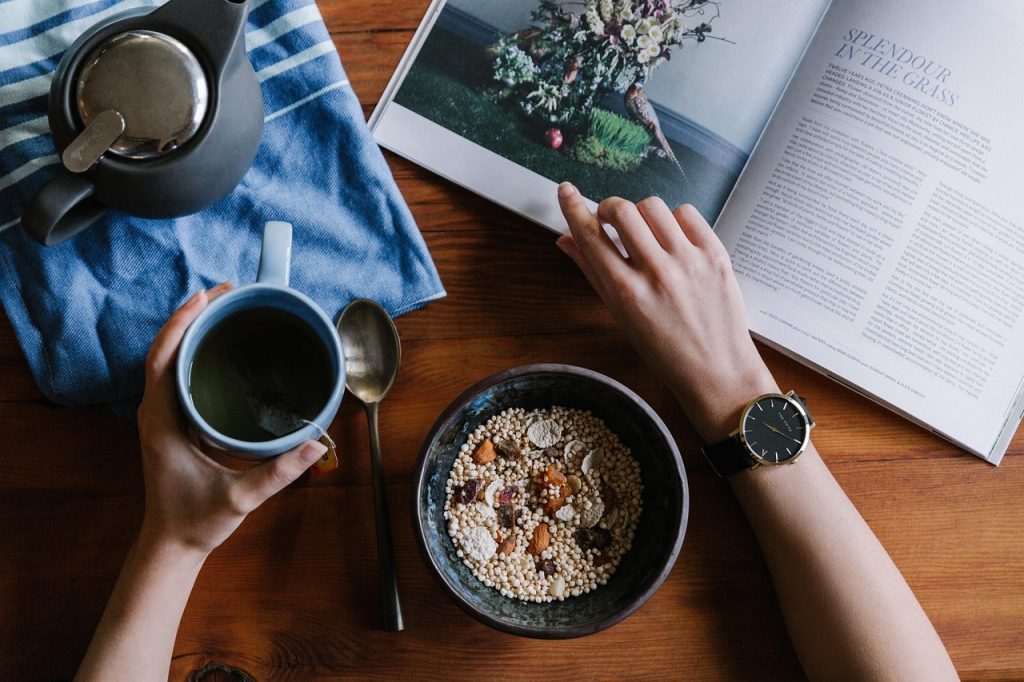Let’s be honest—most of us have a complicated relationship with food. Whether it’s jumping from one trendy diet to another or constantly thinking about what we “should” or “shouldn’t” eat, the pressure to control our eating can feel endless. But what if there were a way to approach food that doesn’t involve restriction, guilt, or tracking every bite? That’s where intuitive eating comes in—a practice that’s been gaining momentum for good reason.
So, What Is Intuitive Eating?
Intuitive eating is a way of eating that’s rooted in listening to your body—really listening. It was first developed in the mid-90s by two dietitians, Evelyn Tribole and Elyse Resch, who were fed up with the diet industry’s rigid rules and the harm it causes to people’s relationships with food and their bodies. At its core, intuitive eating encourages you to eat when you’re hungry, stop when you’re full, and reject the idea that food has to be earned or balanced by punishment.
It sounds simple, right? Eat when you’re hungry, stop when you’re not. But after years—maybe even decades—of absorbing diet culture’s rules about “good” and “bad” foods, many of us have lost touch with what hunger or satisfaction even feel like. Intuitive eating helps you rebuild that trust with your body.
It’s based on ten principles that guide the journey, from rejecting the diet mentality and honoring your hunger to making peace with food and respecting your body. The approach isn’t about weight loss, though some people do lose weight; others may stay the same or gain. That’s not the point. The goal is food freedom and body respect, not shrinking yourself to fit an external standard.
Why Intuitive Eating Stands Out
We live in a world obsessed with control—especially when it comes to food and body image. Calorie counting apps, before-and-after photos, 30-day challenges—it’s everywhere. Diet culture is a $70 billion industry, and it thrives on making people feel like they’re never quite enough. Intuitive eating is the antidote to that mindset.
One of the biggest shifts intuitive eating offers is learning to tune in instead of tuning out. Instead of using an app to tell you when to eat or what macros to hit, you learn to check in with your body: Am I actually hungry? Do I want something crunchy and salty, or soft and sweet? Do I feel satisfied, or am I just eating out of habit or emotion?
That kind of self-awareness can feel like a radical act in a world that profits off your disconnection from yourself. It’s not about eating whatever you want, whenever you want with no thought at all—it’s about understanding why you want something, and making peace with your choices.
The Benefits of Eating Intuitively
There’s growing research showing that intuitive eating is associated with a range of physical and mental health benefits. Here are just a few:
- Improved Relationship with Food: People who eat intuitively report fewer episodes of binge eating, emotional eating, and food guilt. You stop seeing food as the enemy, and start seeing it as nourishment—both physically and emotionally.
- Better Mental Health: Intuitive eating has been linked to lower rates of anxiety, depression, and disordered eating. Letting go of restrictive food rules can free up a lot of mental space.
- More Stable Weight: While weight loss isn’t the goal, intuitive eaters often experience more stable weight over time. That’s because they’re no longer stuck in the cycle of restriction and rebound eating.
- Body Respect and Acceptance: Instead of fighting your body, intuitive eating encourages you to respect it. That doesn’t mean loving how you look every second of every day—but it does mean acknowledging that your body deserves care, nourishment, and kindness at any size.
- Sustainable Habits: This isn’t a quick fix. It’s a lifelong way of relating to food that’s flexible, adaptable, and based on self-trust. There are no “cheat days” or rigid plans to follow—just you and your body learning to communicate again.
Is Intuitive Eating Right for You?
If you’ve been stuck in the diet cycle—starting a plan, following it strictly, falling “off track,” feeling guilty, and starting over—intuitive eating might be exactly what you need. It’s especially helpful for people who feel overwhelmed by food rules or who struggle with emotional eating, binge eating, or body image issues.
That said, intuitive eating isn’t always easy. Unlearning years of diet mentality can be challenging, and it might bring up some uncomfortable feelings. Some people find it helpful to work with a dietitian or therapist trained in intuitive eating to help navigate those early stages. It’s not about doing it perfectly—it’s about showing up with curiosity and compassion, day after day.
Also, if you have a medical condition that affects the way you eat—like diabetes or food allergies—you can still practice intuitive eating. In fact, there’s a principle specifically for “gentle nutrition,” which encourages you to consider how food makes you feel and how it supports your health, without turning nutrition into another set of rigid rules.
Getting Started
If you’re curious about intuitive eating, here are a few simple ways to begin:
- Start noticing your hunger and fullness cues. Try to eat when you’re gently hungry, and pause halfway through a meal to see how you’re feeling.
- Ditch the food rules. Start questioning the beliefs you’ve picked up—like “carbs are bad” or “eating at night makes you gain weight.” Where did they come from, and do they actually serve you?
- Practice self-compassion. This is a journey, not a destination. Some days you’ll eat past fullness, or eat emotionally—and that’s okay. The point is to notice, reflect, and keep going.
- Follow diverse voices. Seek out books, podcasts, and social media accounts that support intuitive eating and body diversity. A few to start with: the book Intuitive Eating by Tribole and Resch, the podcast Food Psych by Christy Harrison, and the Instagram accounts of non-diet dietitians.
Intuitive eating isn’t another thing to master or get right—it’s an invitation to slow down, tune in, and trust yourself. It’s a way to heal from the constant noise of diet culture and get back to something many of us lost a long time ago: the simple joy of eating.
So, should you try it? If you’re ready to stop fighting your body and start listening to it, then yes—intuitive eating might just change your life. It won’t happen overnight, but with patience and curiosity, it can offer the peace and freedom so many of us have been searching for.
Because here’s the truth: your body is not a problem to fix. It’s your home—and it deserves to be treated like one.






